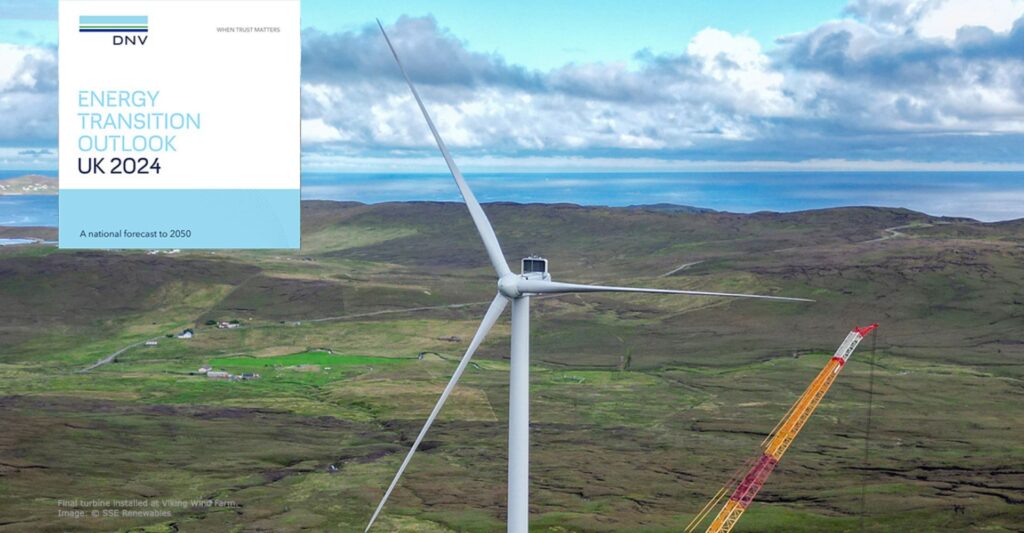UK Energy Transition Stalls, DNV Report Warns, Urges Urgent Action

|
Listen to this story:
|
A new report by DNV, the energy expert and assurance provider, paints a stark picture of the UK’s energy transition. While the UK has ambitious climate goals, the current pace of progress is insufficient, putting the country at risk of missing its 2030 and 2050 decarbonization targets.
Key Findings:
- Off Track: The UK is currently on track to miss its 2030 NDC and 2050 net zero targets. Annual emissions could reach 125 MtCO2e in 2050, falling short of the 100% reduction needed.
- Stalling Progress: The report identifies several areas of concern, including the disappointing wind allocation round, uncertainty surrounding home heating decarbonization, and the limited role of hydrogen.
- Fossil Fuel Dependence: Despite increased renewable energy, the UK remains heavily reliant on fossil fuels, with a 70% dependence by 2031.
- Affordable Transition: The report emphasizes the affordability of the transition, with annual energy infrastructure spending rising to £38 billion but remaining 1% of GDP.
- Consumer Benefits: Domestic energy bills are expected to decrease by nearly 40% by 2050 due to increased electrification and renewables.
Call to Action:
DNV urges the UK government to take immediate action by:
- Prioritizing long-term policy clarity and consistency to attract investment.
- Adopting a “whole systems” approach addressing supply, transmission, demand, and social impacts.
- Providing clear incentives for green generation and infrastructure development.
- Engaging with society to embed low-carbon solutions and ensure a just transition.
Related Article: Barclays Revises Climate Policy to Strengthen Support for Sustainable Energy Transition
Time is of the essence. By implementing these recommendations, the UK can still achieve a successful and beneficial energy transition, securing its place as a global leader in climate action.
Additional Notes:
- The report highlights the need for significant investment in grid infrastructure to accommodate the increasing share of variable renewables.
- A panel discussion at the report’s launch will bring together stakeholders to discuss the necessary actions to accelerate the transition.










